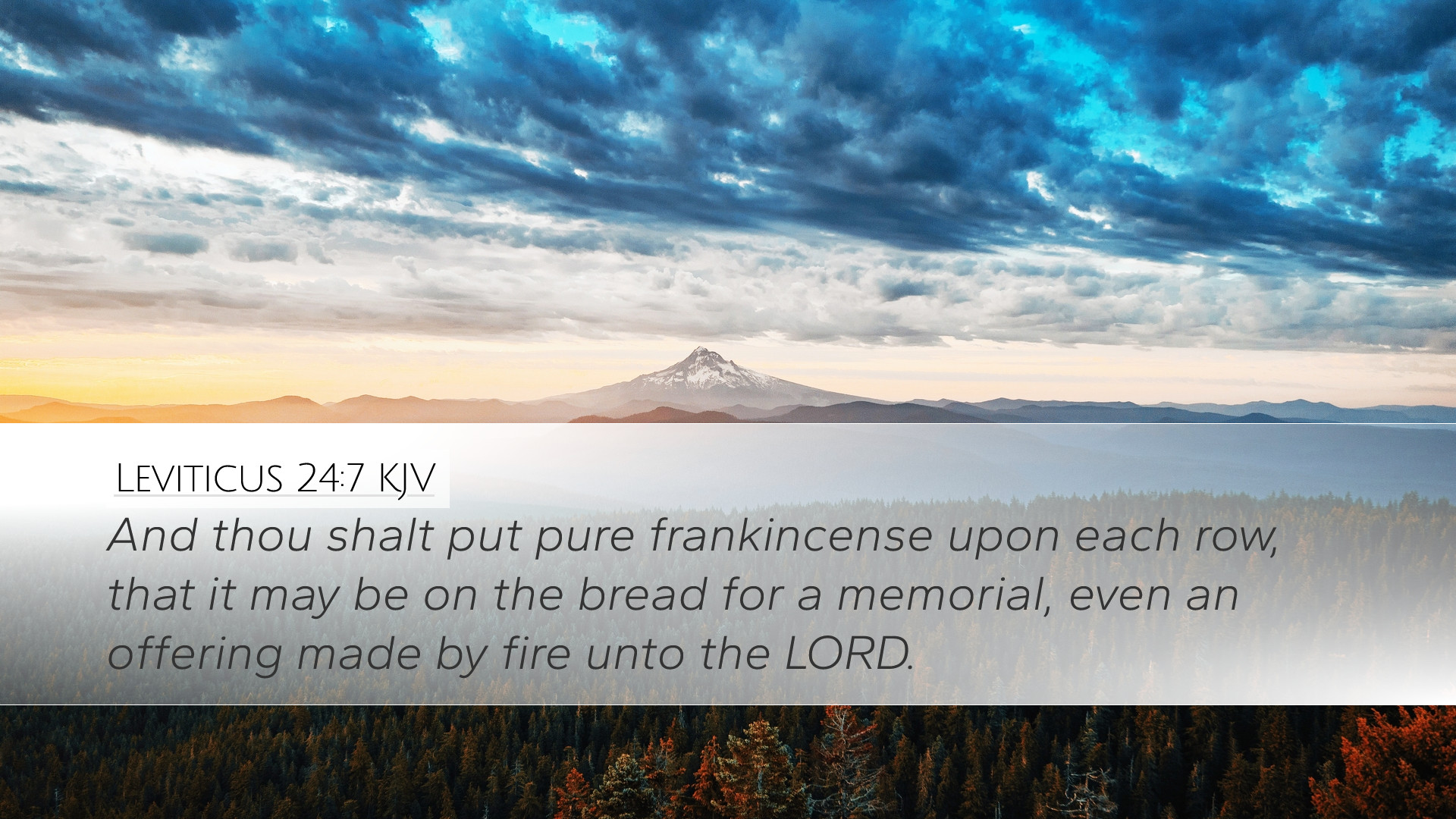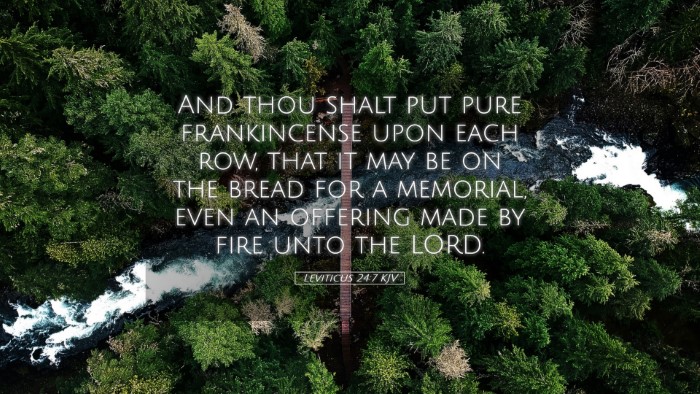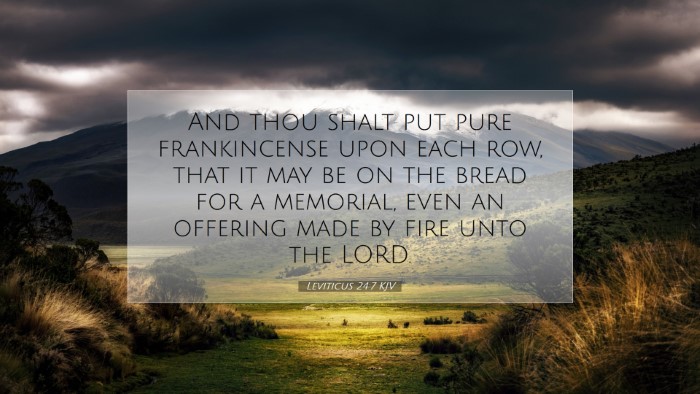Commentary on Leviticus 24:7
Verse: "And thou shalt put pure frankincense upon each row, that it may be on the bread for a memorial, even an offering made by fire unto the Lord."
Introduction
Leviticus 24:7 is situated within the broader context of the Israelites' worship practices. This verse is part of the instructions concerning the showbread, which represented God's covenant with His people. The commentary on this scripture delves into both its ceremonial significance and its theological implications.
Historical Context
The book of Leviticus primarily outlines the laws pertaining to holiness, worship, and the priesthood. Specifically, chapter 24 deals with various elements of the Tabernacle worship, including the sacredness of God’s name and the provisions for the showbread.
The Showbread
The showbread, or "shewbread," holds a significant place in Israelite worship, representing God's perpetual fellowship with His people. Each week, twelve loaves were placed in the Tabernacle, symbolizing the twelve tribes of Israel. The mention of frankincense highlights the importance of aroma as a form of worship.
Matthew Henry's Insights
Matthew Henry describes the showbread as "a memorial for Israel," suggesting that the bread serves as a reminder of God's provision and presence. He emphasizes that the frankincense is added as part of the offering to God, symbolizing the sweet-smelling aroma of dedicated worship. Henry importantly notes that while the loaves symbolize sustenance, the addition of frankincense signifies that worship, too, requires an offering to God that is pleasing and acceptable.
Albert Barnes' Commentary
Albert Barnes provides insight into the significance of the frankincense in this offering. He articulates that the incense was meant to enhance the holiness of the showbread, cementing its role as an offering made by fire unto the Lord. Barnes points out that the term "memorial" indicates that this act of worship was designed to invoke remembrance—not just for God, but also within the Israelite community itself, fostering a continuous awareness of their dependence on the Lord.
Adam Clarke's Reflections
Adam Clarke elaborates on the symbolism of the elements involved in the offering. He notes how frankincense—biblically linked to purity and sacredness—serves as a reminder that worship must always be pure. Clarke draws a connection to the nature of human offerings, emphasizing that the manner in which we approach God—through prayer and offerings—should mirror the significance of the elements in the Tabernacle, embodying both reverence and devotion.
Theological Implications
This verse and its accompanying practices illuminate several theological concepts:
- Divine Provision: The showbread can be viewed as emblematic of God's continual provision for His people, a theme prevalent throughout scripture.
- Worship and Holiness: The requirement of frankincense suggests that worship must be pursued with purity and intentionality, aligning with the overarching call to holiness found in Leviticus.
- Memorial Offerings: The idea of a "memorial" underscores the importance of remembrance in faith, echoing the call for believers to remember God's deeds and provisions.
Practical Applications for Believers
For pastors, students, and scholars, the study of Leviticus 24:7 encourages consideration of how worship is approached today:
- Approaching God with Reverence: The necessity of pure offerings reminds present-day worshippers to come before God with a heart of sincerity.
- Incorporating Symbolism: Understanding the symbolism in worship can enrich congregational practices. Elements such as bread and incense still hold meaningful implications for modern worship settings.
- Encouraging Remembrance: This verse encourages believers to cultivate practices that invoke remembrance—like communion or memorials—that can deepen their relationship with God.
Conclusion
Leviticus 24:7 provides a profound insight into the nature of worship and the importance of offerings that are both tangible and spiritual. By examining this verse through the lenses of various commentaries, believers are invited to explore how ancient practices can inform contemporary worship, framing a community that is continually reminded of God’s presence and provision.


